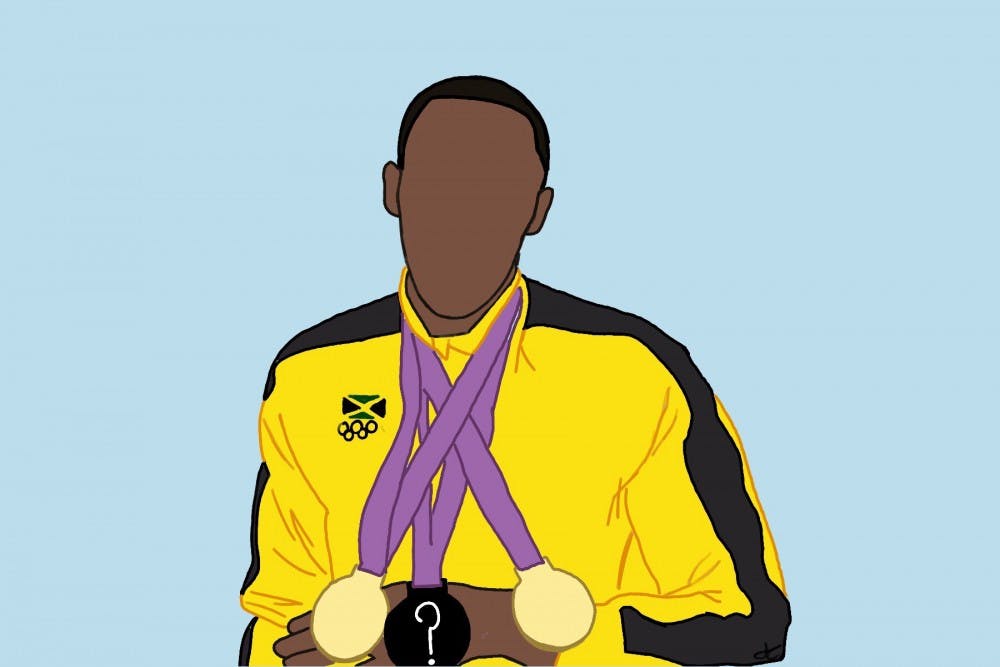Sprinting legend Usain Bolt is the latest Olympian to be forced to forfeit a medal because of doping — a just decision, even though he didn’t break any rules.
Beijing 4x100 relay teammates Bolt, Asafa Powell, Michael Frater and Nesta Carter, who represented Jamaica, were all stripped of their titles and gold medals after Carter’s 2008 sample was retested and traces of the prohibited substance methylhexaneamine were found.
Because of this incident, Bolt is losing his triple-triple status, reducing his gold medal count from nine to eight.
While some may argue that because Bolt was innocent in the case, he should be able to hold on to his medal, this would not be right.
“There are not many team sports in track, but this is one of them and you have to treat the four of them as one unit,” Arizona Republic sports columnist and ASU sports journalism professor of practice, Paola Boivin, said. “If one screws up, the others have to pay the price too. I know it sounds pretty unfair, but it’s also unfair to the other countries that competed that lost out on the gold because of it.”
Although taking someone’s medal away years after the incident occurs may seem unnecessary, according to Boivin, “It’s the only way to get the message out that (doping isn’t) right.”
In recent months, at least 29 Russian Olympic medalists have been retroactively found to have been doping or had a relay teammate who was doping in either the 2008 Beijing games or the 2012 London games. Other athletes hail from countries such as Greece and Ukraine.
All their medals and titles have been stripped.
“I think a cheater is a cheater, whether it was 30 years ago or 30 days ago,” Boivin said. “They still committed the same act, and if information is coming out, even after all this time, I think it’s only fair. I don’t think they should be rewarded just because they cheated a longer time ago than somebody recently.”
The International Olympic Committee can reopen cases for up to 10 years, and even if it takes this long to prove foul-play, it is still necessary to do so and to punish those who committed the act.
The same goes for college-level athletes in the National Collegiate Athletic Association.
Across the nation, colleges and universities have inconsistent performance-enhancing drug (PED) policies, and while improvements have been made, the NCAA is struggling to manage the problem.
Just last month, University of Arizona sophomore Allonzo Trier was cleared to play for the Wildcats’ basketball team after he had an indefinite suspension from the preseason for testing positive for a PED.
This shows progress in the realm of catching and effectively punishing college-level violators, but also indicates that the doping epidemic goes beyond just the Bolt incident or the highly-publicized Russian scandal.
However, it is important to understand that the country, school or team should not take all the blame for doping scandals. Everyone has the ability to make the right decision, and if they break the rules, they are subject to investigation and punishment.
“These are adults who are competing, and at some point we all have to start taking personal responsibility for our actions,” Boivin said. “While I think there are a lot of countries that need to do better (at monitoring their athletes), it should be about accountability, and I think accountability starts with the athlete.”
Reach the columnist at alexwolfe3098@gmail.com or follow @alexandracwolfe on Twitter.
Editor’s note: The opinions presented in this column are the author’s and do not imply any endorsement from The State Press or its editors.
Want to join the conversation? Send an email to opiniondesk.statepress@gmail.com. Keep letters under 300 words and be sure to include your university affiliation. Anonymity will not be granted.
Like The State Press on Facebook and follow @statepress on Twitter.




